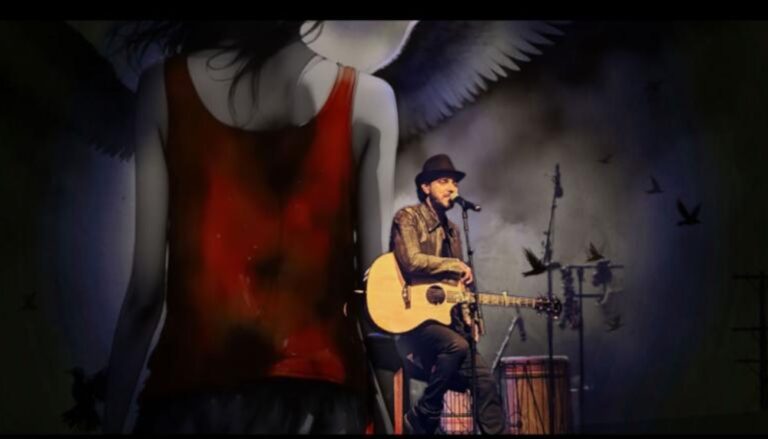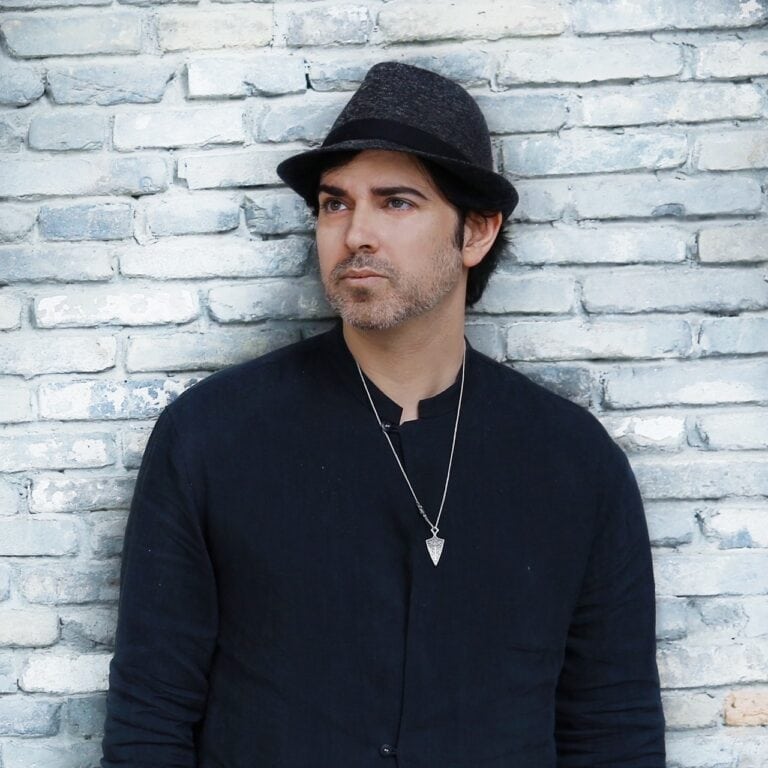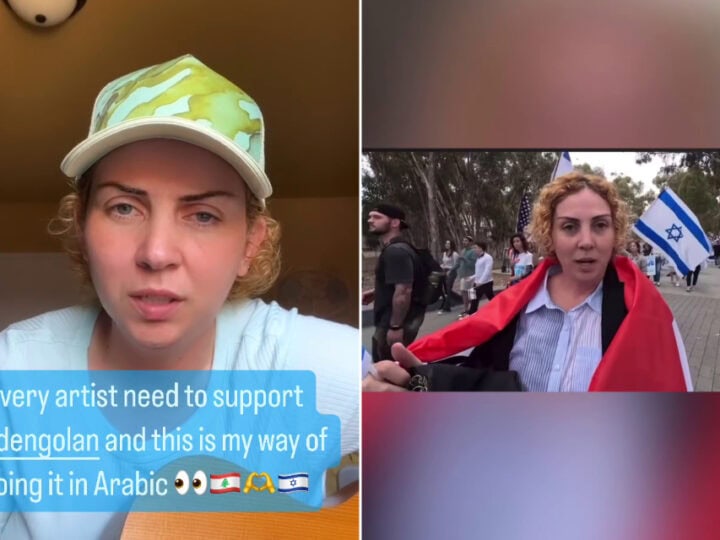“The Israeli people tend to tell our stories from the perspective of victimhood,” says award-winning Israeli recording artist Gilad Segev, “but we need to start telling our story in the narrative of heroism.”
Segev started Project Heroes “to change that narrative of our own perception and project it to the rest of the world.”
The immersive multimedia show Segev has already put on in New York City, Palo Alto, Los Angeles, and will present on May 22 and May 23 in Montreal and Ottawa, respectively, weaves together recorded and live music, music videos and documentary scenes — in English or in Hebrew with English subtitles — to honor the unexpected heroes of October 7 and its aftermath.
Heroes like Aner Shapira, an off-duty soldier who was at the Supernova party near Kibbutz Re’im on October 7 and ran to a shelter where 30 people were surrounded by terrorists throwing grenades. Shapira caught seven hand grenades and threw them back out, but the eighth one exploded in his hand and killed him.
All profits from the project will be donated to residents of Gaza border communities and others impacted by the Hamas attacks.
Songs for heroes
The death of his brother, an IDF officer killed in the line of duty, triggered Segev’s career 20 years ago. His song “Achshav Tov” (Now it’s Alright) rose to the top of the Israeli charts.
Under the name Passerby, Segev became a traveling artist with fans and collaborators in countries including China, Japan, Cuba and Malawi. There’s a Passerby book and an upcoming TV series documenting “Passerby Heroes” who’ve overcome difficulties through music.

“When October 7 happened, I was on the west side of Mongolia in the most remote place I’ve ever been,” Segev told Israel Radio Hour.
“When I heard the news, I was shocked by the atrocities but I was also shocked by the amazing acts of heroism I encountered and the sacrifices involved.”
It was time to take the Passerby project home.
He posted texts about the heroes on social media. The volume of responses in many different languages encouraged him to turn them into songs in cooperation with his producer, Gilad Shmueli, and the families of the heroes.
40 songs
“I sent each family the first version of the song and they had the opportunity to change or correct the words. There will be a Project Heroes book of almost 40 songs written together with the families,” he says. “Every song in the album reflects one element of Jewish heroism.”
“Heroes can save us again and again because their stories can help us heal from trauma.”
Segev and Shmueli are producing 10 music videos as well.
One shows Iren Shavit, whose fiancé, Netta Epstein, jumped on a live grenade thrown into the shelter of their home in Kfar Aza, saving Shavit by sacrificing himself. Shavit wrote the words that Segev put to music, and bravely volunteered to appear in the video.
Another Project Heroes video is dedicated to Erick Peretz and his daughter, Ruth, who had muscular dystrophy and cerebral palsy. Erick took Ruth to music festivals and helped her dance in her decorated wheelchair. Bound together in a final embrace, they were murdered on October 7 at the Supernova music festival.
Segev tells ISRAEL21c that he is unafraid of hatred. He embarked on his US tour “not to be loved, but just to share the truth.”
Yet he found that his show resonates with American audiences because he bypasses politics and agendas, focusing on the human angle.
“Before we are anything else, we are human beings. That is the way we communicate ourselves, and the audiences react accordingly.”
Risking everything
He’s working on a broader project showcasing Jewish heroes of history, including biblical greats like King David.
Segev, whose father is a general and mother is a Holocaust survivor, believes Jewish heroism is in a category of its own.

“In Hollywood films, an action hero is someone who goes into a room and blasts everyone. Jewish heroism is about resilience, about helping one another by risking everything at a certain moment. It’s not about conquering; it’s about making people free. It’s about overcoming things by excelling, not by complaining,” he says.
“We are surrounded by heroes and we need to see ourselves for what we are: A peace-loving people who would never attack anyone unless we are forced to defend ourselves. The seventh of October was a reflection of that.”
Even heroes who lost their lives, he says, “can save us again and again because their stories can help us heal from trauma. Their heroic acts will end only when we stop talking about them. That’s why we started Project Heroes.”
Something to smile about
Segev says he sees himself as surrounded by the light of the fallen heroes, and reflects their light through songs and storytelling.
“If I have any courage to do things I didn’t do before, it’s only due to the inspiration I got from the heroes.”
Witnessing this reflected light helping others deal with tough moments “allows me to feel great hope and also that we are doing the right thing.”
Although the present looks bleak, he adds, “horrible things that have happened are also a great opportunity for unity, for a change within us. I trust the heroes to guide us further into a bright future, if we just share their stories.”
For additional information on Project Heroes, click here. Download concert details and song backgrounds here.















